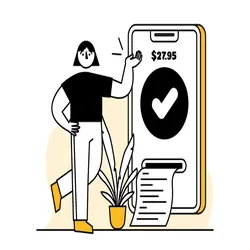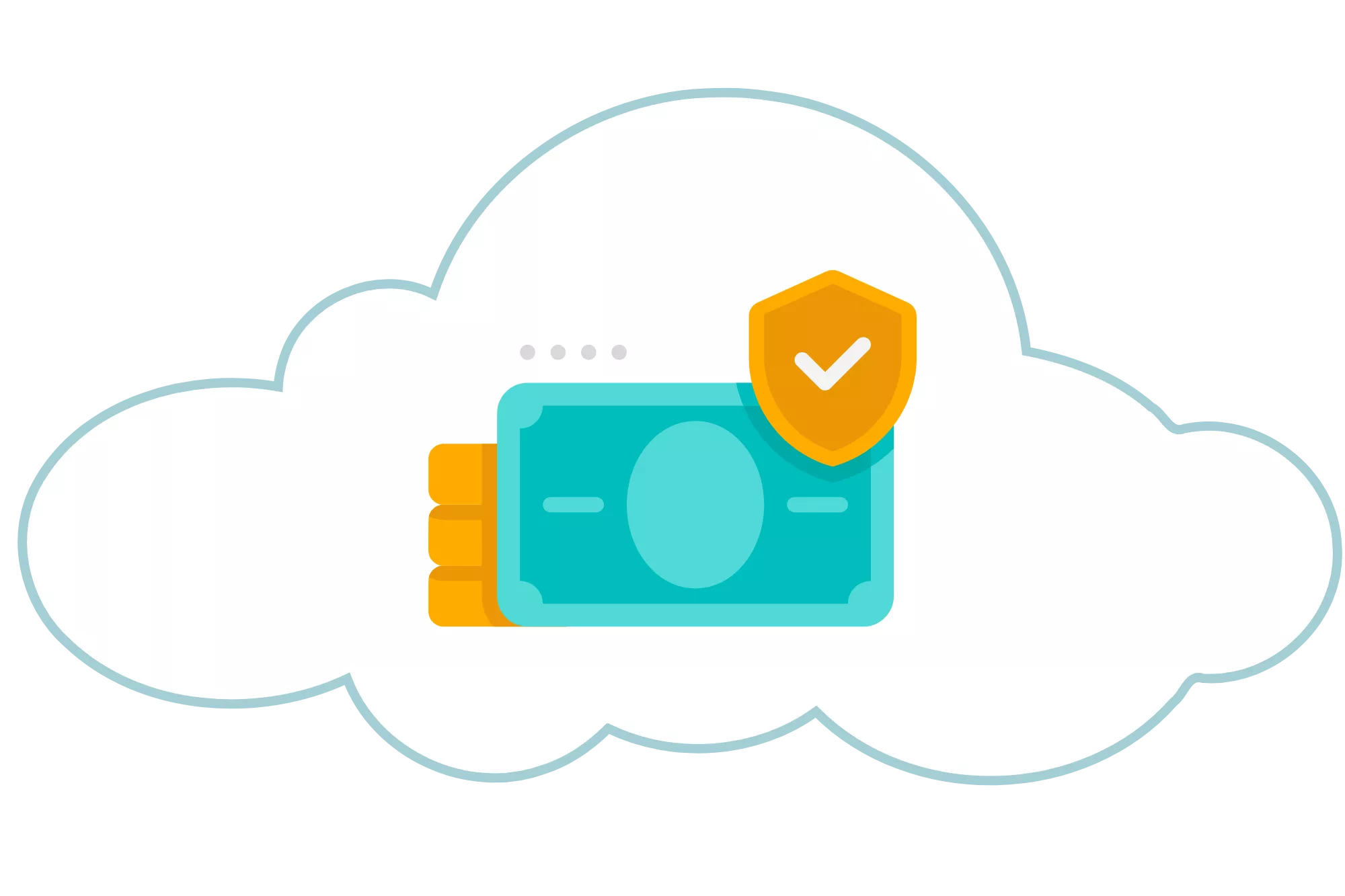TABLE OF CONTENTS
- What Is the Address Verification Service (AVS)?
- How the AVS Systems Works
- Why Is the AVS System Important?
- What Information Is Assessed In an AVS Check?
- AVS Example
- Pros and Cons of Using an Address Verification System
- What Is an AVS Decline?
- How to Use AVS for an Order Review
- Roles and Liabilities of Merchants
- Handling Chargebacks on Transactions with an AVS Match
- AVS and Cardholder Rights
- Final Thoughts on AVS
If you accept credit cards to make purchases online, you may have used Address Verification Service (AVS) and not even realize it. Every time you input your billing address into a shopping cart, the payment processor verifies your address by matching it with the one on file with your card. This seemingly small step in the checkout process plays a significant role in preventing fraud and protecting cardholders. While the term AVS is uttered between payment experts so often that it might as well be a secret code, you may be looking for a deeper understanding of what it is. In this case, follow along as we take a closer look at what AVS is, how it works, and why it’s important for online transactions.
What Is the Address Verification Service (AVS)?

AVS stands for address verification service. In short, it is a payment gateway authentication feature for card payments to ensure they are both legitimate and secure. This payment gateway feature checks the billing address provided by a customer against the address on file with the credit card issuer. If the two addresses match, the payment gateway authorizes the transaction. However, if the addresses do not match, the transaction may decline. AVS checks are not foolproof, but they help to prevent someone from using a stolen credit card to make purchases.
How the AVS Systems Works
AVS ensures safety in accepting high-risk transactions for merchants and cardholders. When you process a card by tapping, inserting, or swiping, you give the machine a little batch of information to send to your customer’s bank. This process is called an “authorization request,” during which information is gathered to verify transactions. It typically includes the card number, the cardholder’s name, and the amount of money requested. The whole process takes a couple of seconds and is most importantly your first line of defense in detecting fraudulent credit card transactions.
Let’s break down how the AVS system works in four steps:
- Upon reaching the checkout page, the buyer inputs billing details into the payment gateway (name, address/zip code, etc.)
- The authorization request package is sent to the buyer’s bank for verification.
- The processor compares the two billing addresses against each other.
- There is now either a match or a discrepancy. In the event of the latter, the associated code will reveal the reason the payment can’t complete. The most AVS common codes are as follows:
| Y | Both the zip code and the address are a match |
| A | The address matches but has the wrong zip code |
| Z | The zip codes are a match but the addresses are not |
| N | Neither the zip code nor address match |
Why Is the AVS System Important?
AVS is an important system to both merchants and buyers, as it catches fraudulent instances where customers attempt to use stolen credit and debit card numbers. AVS has become one of the top card-not-present (CNP) fraud deterrents used. Let’s take a look at the specific reasons the AVS system is so important to both merchants and consumers:

Merchants
AVS protects against fraud and chargebacks. A chargeback happens when a customer disputes a charge on their credit card, prompting the card issuer to investigate and determine if the charge is fraudulent or not. If the issuer discovers fraud, they reverse the charge and refund the customer’s money at your expense. In most cases, the merchant sees a chargeback fee between $10 and $25. AVS authentication is best for preventing fraudulent charges and keeping merchant account fees at bay.

Customers
AVS is used as an extra step in preventing fraudulent use of a customer’s credit card. The AVS process makes it harder for fraudsters to make purchases on stolen credit cards. For example, if a fraudster gets ahold of someone’s credit card and attempts to make a purchase, oftentimes they don’t know the correct billing address associated with the card. In turn, their transaction declines, and the customer’s card information is kept safe.
What Information Is Assessed In an AVS Check?
The information assessed during an AVS check is pretty straightforward. Although a merchant may ask for a full address, the address verification system usually looks at the house number and the zip code. There are varying levels of verification, so if you receive a zip code to match but not the house number, an AVS code will show the discrepancy.
AVS Example
Most people using credit cards have been subject to an AVS check at least once. For example, when purchasing gas, you are asked for a zip code. Gas stations use AVS checks by comparing the zip code you entered to the zip code connected to the card. Likewise, purchases online require your billing address to compare to the address associated with the card number keyed in.
Pros and Cons of Using an Address Verification System
Pros
- Improved security: The AVS verifies whether the address entered matches the address associated with the card on record.
- Compliance with regulations: Payment processors usually require high-risk businesses to have AVS settings turned on.
- Streamline payments: Since payments are checked before authorization, this prevents any potential payment delays.
Cons
- Not foolproof: Although AVS checks are a great tool, fraud can still occur.
- False declines: AVS can increase false declines. Inputting an incorrect zip code may actually stop a legitimate transaction from going through.
- Disrupted business operations: Technical issues with payments not processing correctly may put a pause on collecting payments.
What Is an AVS Decline?
An AVS decline is when the authorization declines because of mismatched information, specifically the zip code or house number. When this happens, the credit card processor doesn’t allow the transaction to go through.
It’s important to verify that the system is set up the way you’d like it to be on the back end. You can do this by contacting your merchant service provider to adjust your payment gateway settings. Some systems have features allowing you to process transactions if AVS checks fail. For example, if a zip code is “close enough,” or if one piece of information matches but another doesn’t, the transaction will still be approved.
How to Use AVS for an Order Review
AVS should not be your only security measure. While AVS can be helpful in protecting your business from fraud, it’s important to remember that it’s not foolproof. In some cases, fraudsters may have access to the billing address on the stolen card. While reviewing an order, it’s beneficial to also look at the CVV, IP address location, shipping address, and order history to ensure everything looks legitimate. Multiple levels of security can be valuable to merchants, as one isn’t always enough.
Roles and Liabilities of Merchants
When you use an address verification service, you are responsible for ensuring the information you provide is accurate and up-to-date. You’re also responsible for properly encrypting, destroying, or securing cardholder data per PCI compliance guidelines.[1]PCI DSS. Payment Card Industry Data Security Standards. Accessed March 9, 2023. Additionally, you are liable for any charges associated with the AVS service (usually $0.01 to $0.02 per AVS check).
Handling Chargebacks on Transactions with an AVS Match

Unfortunately, if a chargeback happens on a transaction that is an AVS match, filing a chargeback dispute is necessary if you want to win the chargeback. However, the AVS match proves you did your due diligence to prevent fraud.
Fighting a chargeback can be frustrating, especially if you’ve taken the extra steps to make sure the charge is legitimate. Additionally, the chargeback process is time-consuming and because of this, many merchants choose not to fight them and accept the losses. It’s highly important to fully understand the chargeback process and to take preventative measures against fraud so that you can avoid future complications.
AVS and Cardholder Rights
Cardholders have many rights and protections. Therefore, it is the bank’s responsibility to take any claim of fraudulent activity seriously. Even if a full AVS match has been completed, the bank is still required to open an investigation into what happened. While it can be easy for cardholders to claim fraud, they will need to provide multiple levels of proof before a chargeback is ruled in their favor. The same goes for merchants looking to win a chargeback dispute.
Final Thoughts on AVS
If you operate an eCommerce business, it can be difficult to verify whether or not transactions are legitimate since cards aren’t physically present for these types of transactions. Address verification is an easy and popular way to increase payment security for both you and your customers. AVS checks cut down on fraud and chargebacks, saving time and money for both parties involved. Finding a payment gateway provider offering top-of-the-line account security features can give you peace of mind that your business is protected.







